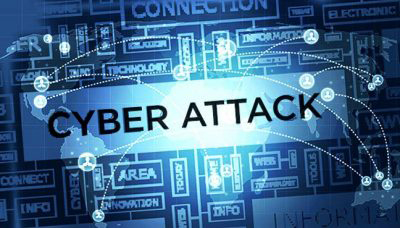| « Macron Sworn in as French President | North Korea’s Concern for Self-Defense » |
Massive Global Malware Attack
Stephen Lendman
Financial war and cyberwar can be more destructive than standing armies, able to cause enormous harm to many millions worldwide, severely damaging and halting government, commercial, and personal online activities.
A statement by US Rep. Ted Lieu (D. CA), House Judiciary and Foreign Affairs Committees member, said the following:
“The massive malware attack that hit multiple countries has caused chaos and has shut down vital institutions such as hospitals. It is deeply disturbing the National Security Agency likely wrote the original malware.”
“I have been working on legislation with industry stakeholders and partners in the Senate to address this problem.”
“Today’s worldwide ransomware attack shows what can happen when the NSA or CIA write malware instead of disclosing the vulnerability to the software manufacturer.”
“(I)t is clear to me that many of our public and private institutions are woefully unprepared for cyberattacks. We live in a brave new world. The time is now for Congress to seriously address cybersecurity issues.”
Security experts called Friday’s malware attack a digital perfect storm. Cyber-security firm Cyberreason believes the incident “is the largest (global attack) in the effect it is having, affecting nearly 100 countries worldwide.”
According to security firm Flashpoint’s Chris Camacho, “(w)hen people ask what keeps you up at night, it’s this.”
Wikipedia calls ransomware used in Friday’s attack “computer malware that installs covertly on a victim’s device (computers, smartphones, wearable devices), and that either mounts the cryptoviral extortion attack from crytovirology that holds the victim's data hostage, or mounts a cryptovirology leakware attack that threatens to publish the victim’s data, until a ransom is paid.”
A message is displayed demanding payment to reverse what’s been locked. “More advanced malware encrypts the victim’s files, making them inaccessible.” Computer Master File Tables and hard drives can be locked, preventing users from accessing data, risking its loss by deleting it.
Developed by the NSA for cyberattacks, the malware is now widely available, including to elements responsible for Friday’s incident - maybe a precursor for more widespread attacks against governments, businesses, and virtually any other digital targets worldwide.
Cyber technology threatens everyone connected online. Edward Snowden said Congress should demand the NSA disclose its arsenal of malware tools able to fall into the wrong hands.
According to WikiLeaks, “(o)nce a single cyber ‘weapon’ is ‘loose,’ it can spread around the world in seconds, to be used by rival states, cyber mafia and teenage hackers alike.”
Separately, WikiLeaks tweeted, “(i)f you can’t secure it - don’t build it…US cyber weapons (pose an) extreme proliferation risk.”
According to security experts, cyber-criminals used stolen NSA malware, targeting governments, businesses, hospitals, power grids, public services, and individuals opening infected attachments or email links.
Enormous cyber vulnerabilities exist. Friday’s incident suggests more like it to come, perhaps an eventual digital equivalent of dirty nuclear bomb contamination worldwide.
-###-
Stephen Lendman lives in Chicago. He can be reached at lendmanstephen@sbcglobal.net.
His new book as editor and contributor is titled "Flashpoint in Ukraine: How the US Drive for Hegemony Risks WW III."
http://www.claritypress.com/LendmanIII.html
Visit his blog site at http://www.sjlendman.blogspot.com.



